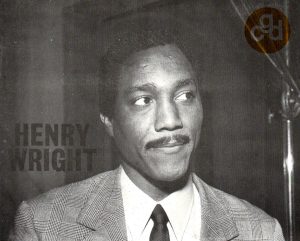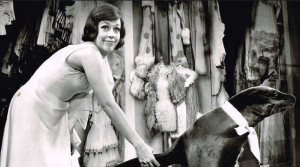Podcast: Play in new window | Download (Duration: 1:35:07 — 112.8MB) | Embed
Subscribe: Spotify | TuneIn | RSS | More
Something a little outside of the normal scope of Countermelody for today’s episode:
Earlier this year I published a bonus episode on the fascinating singer/songwriter Benard Ighner (1945-2017) and his modern-day standard “Everything Must Change,” which I re-present today. The song has had a profound effect on me ever since I heard the version by the great Oleta Adams on her 1990 solo debut album, Circle of One. At the time I assumed that Oleta herself had written it, but I came to discover that it was penned by Ighner and first recorded by Quincy Jones on his 1974 album, Body Heat, and that since then many, many pop and jazz singers of the past fifty years have covered the song. All these different versions have both delighted and fascinated (as well as occasionally mystified and frustrated) me. The song itself is both fatalistic and hopeful, which is exactly the place I find myself as Election Day in the US approaches. Intrigued by both the song and its composer, I dug deeper and discovered all I could about Benard Ighner. An autodidactic musical polymath, Ighner rubbed shoulders with some of the greatest pop and jazz musicians of his time, and not just the hundreds of singers and instrumentalists who have jumped on the “Everything Must Change” bandwagon! This song brings out either the very best or the very worst of those who interpret it. In choosing my favorite versions, I have veered toward those who embrace understatement rather than vocal caterwauling and children’s choruses. The episode begins with examples of Ighner’s early work from the late sixties and early seventies, including pseudonymous encounters with Dizzy Gillespie (as Benard Ito) and Lalo Schifrin (as Alexander Saint Charles); proceeding through songs he wrote and produced for Shirley Bassey, Marlena Shaw, and Carmen McRae; as well as two excerpts from his solo album, a one-off 1978 Japanese release entitled Little Dreamer. We then hear ten different versions of the song, including, among others, Nina Simone, June Christy, Peggy Lee, Sarah Vaughan, Minako Yoshida (sung to her own Japanese translation), a recent magisterial live performance by Oleta Adams, and, even Ighner himself, who, alongside his other many musical talents, possessed a velvety baritone voice of exceptional beauty, poise, and power.
May this episode provide hope, courage, and insight for all of those who do believe that we can overcome the mad popularity-contest antics of this election cycle and lean toward a future in which morality and hope can still prove to be guiding principles.
Countermelody is a podcast devoted to the glory and the power of the human voice raised in song. Singer and vocal aficionado Daniel Gundlach explores great singers of the past and present focusing in particular on those who are less well-remembered today than they should be. Daniel’s lifetime in music as a professional countertenor, pianist, vocal coach, voice teacher, and journalist yields an exciting array of anecdotes, impressions, and “inside stories.” At Countermelody’s core is the celebration of great singers of all stripes, their instruments, and the connection they make to the words they sing. By clicking on the following link (https://linktr.ee/CountermelodyPodcast) you can find the dedicated Countermelody website which contains additional content including artist photos and episode setlists. The link will also take you to Countermelody’s Patreon page, where you can pledge your monthly support at whatever level you can afford.


